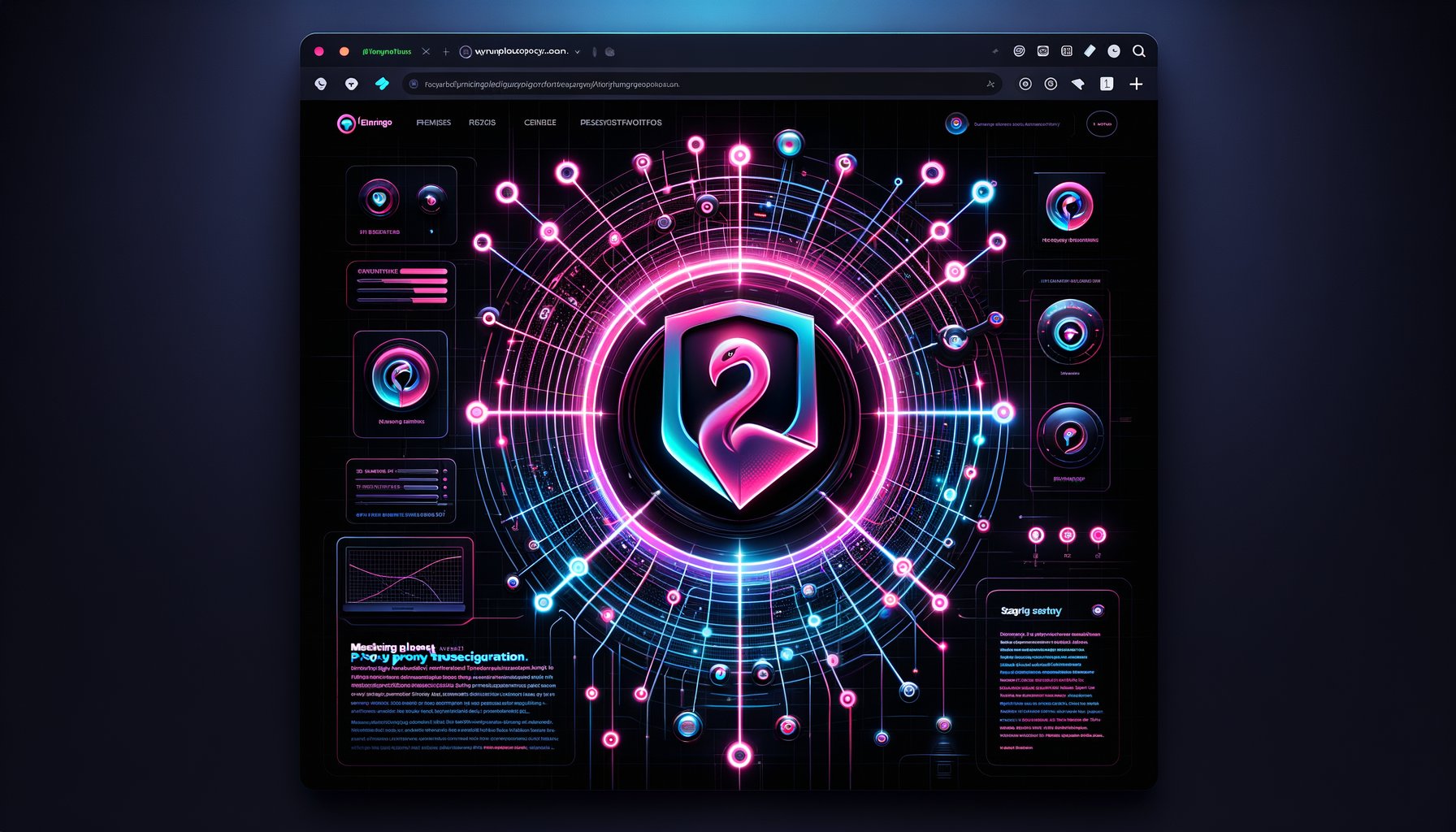Web scraping has become an indispensable tool for businesses, data scientists, and developers seeking to harvest vast amounts of information from the internet. From price intelligence and market research to SEO monitoring and lead generation, the ability to collect data efficiently and ethically is paramount. However, the landscape of web scraping is constantly evolving, with target websites implementing increasingly sophisticated anti-bot measures.
At the heart of successful web scraping lies the strategic use of proxies. But with various types available, choosing the right one can make or break your data extraction efforts. In 2025, the debate often boils down to two primary contenders: residential proxies and datacenter proxies. Which one is best for your specific web scraping needs? Let's dive deep into their characteristics, advantages, disadvantages, and optimal use cases.
Understanding Residential Proxies
Residential proxies are IP addresses provided by Internet Service Providers (ISPs) to real residential users. When you use a residential proxy, your scraping requests appear to originate from a genuine device in a real home, making them incredibly difficult for websites to detect and block. This unparalleled anonymity is their greatest strength.
Advantages of Residential Proxies:
- High Anonymity: Requests mimic real user traffic, bypassing advanced anti-bot systems, CAPTCHAs, and IP bans more effectively.
- Geo-targeting: Obtain IPs from specific cities, states, or countries, crucial for localized data collection or accessing geo-restricted content.
- High Success Rate: Ideal for scraping highly protected or sensitive websites like e-commerce giants, social media platforms, or sneaker sites.
- Ethical Sourcing: Reputable providers like FlamingoProxies ensure their residential IPs are ethically sourced.
Disadvantages of Residential Proxies:
- Higher Cost: Generally more expensive than datacenter proxies, especially when priced per GB of data.
- Variable Speed: Performance can fluctuate as it depends on the actual residential internet connection.
- Less Stable Sessions: IPs might rotate more frequently, which can be a concern for tasks requiring long, persistent sessions (though sticky sessions often mitigate this).
Explore our premium Residential Proxies at FlamingoProxies for unparalleled anonymity and scraping success.
Understanding Datacenter Proxies
Datacenter proxies are IP addresses that originate from secondary servers, typically hosted in large data centers. They are not associated with an ISP or a physical location like a home. While they don't offer the same level of anonymity as residential IPs, they excel in speed, scalability, and cost-effectiveness for certain tasks.
Advantages of Datacenter Proxies:
- Blazing Fast Speed: Hosted on powerful servers, they offer superior connection speeds and bandwidth.
- Cost-Effective: Typically cheaper than residential proxies, making them ideal for high-volume, less sensitive scraping tasks.
- High Availability: Easily scalable with large pools of IPs readily available.
- Stable Performance: Consistent speed and reliability due to dedicated server infrastructure.
Disadvantages of Datacenter Proxies:
- Easier Detection: Websites are more adept at identifying and blocking datacenter IP ranges, especially those with aggressive anti-bot measures.
- Lower Anonymity: Don't mimic real users, making them less suitable for highly sensitive targets.
- Limited Geo-targeting: While they offer country-level targeting, granular city-level targeting is often not available.
Check out our diverse proxy plans at FlamingoProxies to find the perfect fit for your budget and project requirements.
The Battle: Residential vs. Datacenter for Web Scraping in 2025
As we look to 2025, the choice between residential and datacenter proxies becomes even more nuanced. Here’s a breakdown of how they compare across critical aspects:
Anonymity and IP Reputation: Residential Wins
For targets with robust anti-bot systems, residential proxies are the clear winner. Their genuine IP reputation allows them to blend in seamlessly with legitimate traffic. Datacenter IPs, while fast, carry a higher risk of being flagged and blocked by sophisticated detection algorithms.
Speed and Performance: Datacenter Often Wins
When raw speed and high throughput are the priority, datacenter proxies typically outperform. They're excellent for scraping less protected sites where the volume of data is immense, and quick turnaround is essential.
Cost-Effectiveness: Depends on Use Case
For projects requiring massive data volumes from easy-to-scrape sites, datacenter proxies offer a better price per gigabyte. However, if you need to scrape complex sites successfully and avoid repeated bans, the higher cost of residential proxies often translates to better ROI through a higher success rate and reduced time dealing with blocks.
Target Website Sensitivity: Residential for the Toughest Sites
Websites like major e-commerce platforms, social media, and sneaker release sites have heavily invested in anti-bot technologies. For these, residential proxies are almost a necessity. For less sensitive targets, such as public directories, news archives, or basic SEO data, datacenter proxies can be perfectly adequate.
When to Choose Each Type for Scraping
Opt for Residential Proxies if:
- Your target websites employ advanced anti-bot detection, CAPTCHAs, or aggressive IP blocking.
- You require high anonymity and a genuine IP reputation to avoid detection.
- You need to perform geo-targeted scraping for localized content or pricing.
- You're scraping e-commerce sites, social media, flight aggregators, or sneaker release sites.
Example Python Code for Residential Proxy:
import requests
proxy = {
"http": "http://user:password@residential.flamingoproxies.com:port",
"https": "https://user:password@residential.flamingoproxies.com:port"
}
target_url = "https://www.example.com/highly-protected-site"
try:
response = requests.get(target_url, proxies=proxy, timeout=30)
response.raise_for_status() # Raise an exception for bad status codes
print("Residential Proxy Request Successful!")
print(response.text[:500]) # Print first 500 chars of response
except requests.exceptions.RequestException as e:
print(f"Request failed: {e}")
Opt for Datacenter Proxies if:
- Your target websites have less stringent anti-bot measures.
- You need maximum speed and high volume for general data collection.
- Budget is a primary concern for large-scale, less sensitive data acquisition.
- You're scraping open databases, public news archives, or performing SEO keyword monitoring on less protected sites.
Example Python Code for Datacenter Proxy:
import requests
proxy = {
"http": "http://user:password@datacenter.flamingoproxies.com:port",
"https": "https://user:password@datacenter.flamingoproxies.com:port"
}
target_url = "https://www.example.com/less-sensitive-data"
try:
response = requests.get(target_url, proxies=proxy, timeout=10)
response.raise_for_status()
print("Datacenter Proxy Request Successful!")
print(response.text[:500])
except requests.exceptions.RequestException as e:
print(f"Request failed: {e}")
Hybrid Approach and ISP Proxies
In many complex scraping scenarios, a hybrid approach combining both residential and datacenter proxies can yield the best results. You might use datacenter proxies for initial broad sweeps and then switch to residential proxies for deeper, more sensitive data extraction or when encountering blocks.
Moreover, a third type of proxy, ISP proxies, is gaining significant traction. These are datacenter-hosted IPs registered under an ISP, providing the speed of datacenter proxies with the enhanced legitimacy of residential IPs. They offer a fantastic middle ground for many advanced scraping tasks.
Why FlamingoProxies is Your Go-To Solution
Regardless of your chosen proxy type, success hinges on the quality and reliability of your provider. At FlamingoProxies, we understand the evolving challenges of web scraping in 2025. We offer a comprehensive suite of premium Residential, ISP, and Datacenter proxies designed for speed, reliability, and unparalleled success rates.
- Global Coverage: Access IPs from countless locations worldwide.
- Blazing Fast Speeds: Optimized infrastructure for maximum performance.
- High Anonymity: Ethically sourced and robust proxy networks.
- 24/7 Support: Expert assistance whenever you need it.
Our proxies are built to handle the most demanding tasks, from large-scale data collection to bypassing advanced anti-bot systems on critical target sites. Trust FlamingoProxies to power your data ambitions.
Conclusion
The choice between residential and datacenter proxies for web scraping in 2025 isn't about one being inherently 'better' than the other; it's about understanding your specific needs, the nature of your target websites, and your budget. For high-stakes, anti-bot-heavy targets, residential proxies remain king. For sheer speed and volume on less protected sites, datacenter proxies are highly effective. And for a balanced approach, consider the power of ISP proxies.
Ultimately, a successful scraping strategy employs the right tools for the job. Don't let proxy limitations hinder your data collection. Elevate your scraping operations with FlamingoProxies. Visit our website today to explore our diverse range of proxy plans and supercharge your web scraping endeavors!





